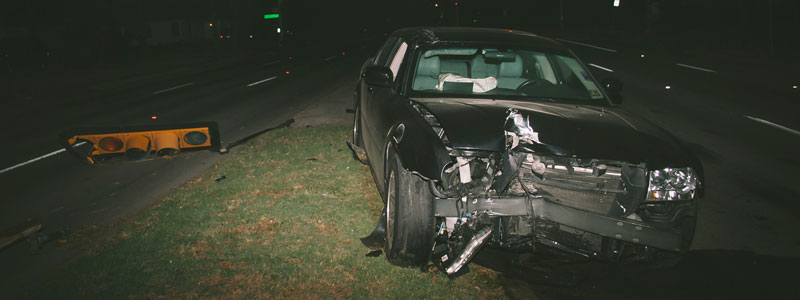How to Know If You’re Getting a Fair Car Accident Settlement

Every car accident settlement is different. It’s hard to know for sure if you’re receiving a fair offer or if you’re being ripped off.
But every car accident settlement has one thing in common: damages.
When you receive damages, you’re receiving compensation for your losses. One of the best ways to evaluate a car accident settlement is to figure out which damages it covers.
Your damages after your car accident likely extend beyond your medical bills. They can touch many different parts of your life, including your:
- Health
- Occupation
- Property
A fair settlement should cover most if not all of your damages.
Medical Damages after a Car Accident

Medical damages are included in a personal injury claim. There are three common types of medical damages:
- Medical expenses
- Emotional distress
- Pain and suffering
Medical Expenses
Medical expenses are perhaps the best known type of damages. When you get injured in a car accident, your biggest worry is probably your medical bills.
The bare minimum a fair car accident settlement should do is to cover your medical bills.
However, you play in a role in which medical expenses the insurance company will reasonably cover.
Seek Treatment Early
You cannot expect your car accident settlement to include compensation for bills you haven’t accrued yet.
If you’re injured in a car accident but refuse to seek medical treatment, the insurance company isn’t obligated to cover any difficulties that may arise from your condition(s). You have to see a doctor in order for your insurance company to pay for it.
The timing of your treatment is important, too. Some insurance companies will refuse to cover your expenses if you wait too long to see a doctor.
They’ll argue that you received your injuries through some other accident, not the car accident they’ve insured you for.
“
The bare minimum a fair car accident settlement should do is to cover your medical bills.
They may even argue that your injuries are worse because you failed to seek treatment, and they may use that to deny you coverage.
There’s also the statute of limitations on your case. This is the deadline for which you can file a personal injury claim after a car accident.
In Indiana, the statute of limitations for personal injury claims is typically two years after the date of the car accident. (One major exception is if your claim involves a government entity — the statute of limitations is typically only 180 days.)
If you were injured in a car accident years ago and only now start seeking treatment, your statute of limitations may have expired, freeing the insurance company from covering your bills.
Wait to Settle
You should seek treatment early, but you should not settle early.
If you settle before you’ve finished treating, then the insurance company is only obligated to cover the medical bills you’ve incurred so far. Any additional bills you receive will be your responsibility.
You only get one car accident settlement, so it’s important when you choose to settle. You should only settle when you’re confident more bills won’t crop up in the future.
If you settle too early, you can’t go back and ask for more, even if your expenses are related to the original car accident.
Keep in mind the statute of limitations we talked about earlier, though. If your statute of limitations is approaching, you’ll need to either settle or file a lawsuit to keep your case open.
“
If you settle too early, you can’t go back and ask for more.
Speak with an Indiana car accident lawyer if you have questions on when or if to settle your case.
Emotional Distress
Some of your medical expenses may be associated with treating emotional distress. Your insurance company should cover any bills you incur from trying to address your mental health.
This would include any prescriptions, therapy, counseling, or other forms of mental health care as a result of your car accident.
Even if you received mental health treatment before your car accident, the insurance company may be responsible for your bills after your car accident.
Events like car accidents can re-trigger mental health problems like depression or anxiety. They may even worsen existing conditions.
Ask an Indiana car accident attorney if your mental health expenses should be covered in your car accident settlement.
Pain and Suffering
Pain and suffering is its own category in a car accident settlement. It refers to:
- The severity of your injuries
- The pain of your injuries
- The expected duration of that pain
There’s no formula to calculate pain and suffering. However, Indiana car accident attorneys have experience with securing compensation for pain and suffering for their clients. They know what’s fair and what’s not, based on each individual’s case.
Occupational Damages after a Car Accident

Occupational damages are included in a personal injury claim. There are two common types of occupational damages:
- Lost wages
- Loss of earning capacity
Lost Wages
Severe injuries take time to heal. Unfortunately, taking that time away from work often costs money.
Whether you’re using your paid time off (PTO) or having to take an unpaid absence from work, you’re losing wages. A fair car accident settlement should cover these losses.
This also applies if you’re still working but have been reduced to part-time or have had to adjust to reduced hours due to your injuries.
If you’re not earning what you normally would earn, then you’re losing wages, and your insurance company should cover them.
However, you can only qualify for compensation for lost wages if your doctor confirms you cannot work. If you take time off without seeing a doctor, you’ll have a hard time getting your insurance company to cover your losses.
Loss of Earning Capacity
Some injuries last a lifetime. If your car accident injuries reduce your ability to earn a living, then your car accident settlement should cover that loss.
When people think of a loss of earning capacity, they often imagine catastrophic injuries. However, depending on your profession, a minor injury could be catastrophic to your career.
“
If you’re not earning what you normally would earn, then you’re losing wages, and your insurance should cover them.
If, for example, you’re a professional dancer and you break both of your legs, you may never be able to dance again. At the very least, you may never be able to dance as well as you did before your car accident.
For someone with a desk job, breaking both their legs may result in lost wages, but it likely won’t result in loss of earning capacity. For a professional dancer, breaking both their legs may mean the end of their career.
If you’ve been permanently disabled in a car accident, it may be difficult for you to ever work again. Individuals who’ve been permanently disabled can apply for Social Security disability benefits for financial assistance, even while their personal injury claims are still open.
Property Damages after a Car Accident

Property damages are addressed in a property damage claim. This should stay separate from any personal injury claim you may also be pursuing.
There are two types of property damage most common after a car accident:
- Vehicle damage
- Damage to your possessions in the vehicle
Vehicle Damage
Perhaps the most common result of a car accident is damage to your vehicle. Even if you walk away from a car accident unscathed, your vehicle might not be so lucky.
If your car has been damaged but not totaled, then you are entitled to the cost of repairs. The insurance company may calculate these expenses with the reduced cost of used parts.
If your car has been totaled, then you are entitled to the value of the car at the time of the accident.
Keep in mind that any upgrades you’ve made likely won’t affect the value of the vehicle.
If you’ve recently put on new tires, for example, you typically won’t see that value reflected in your coverage unless you have clear documentation proving that those modifications increased the value of your vehicle.
“
If your car has been totaled, then you are entitled to the value of the car at the time of the accident.
The value of your vehicle at the time of the accident does not include any loans you may still owe on the vehicle.
For example, if you still owe $5,000 on a $3,000 car, the insurance company is only required to pay you $3,000 in damages. Typically, the only way to get assistance with any outstanding loans you may have on a damaged or totaled vehicle is by having GAP insurance.
Damage to Your Possessions
The insurance company should also cover substantial losses of property that were inside the vehicle at the time of the car accident.
For example, if your phone was destroyed or a pair of sunglasses was crushed, then the value of these possessions should be included in your settlement.
Why Are Property Damages Separate?

The insurance company may offer a car accident settlement that covers both your property damage claim and your personal injury claim. However, it’s typically helpful to keep these two claims separate.
Economic vs. Noneconomic Damages
Your property damage claim is what it is. Estimating the value of property — from cars to smartphones to sunglasses — is fairly straightforward, and there’s little negotiation involved.
This is because your property damage claim consists entirely of economic damages.
“
Your property damage claim is what it is.
Economic damages are losses that have a quantifiable value, evidenced by concrete things like receipts and bills.
Your personal injury claim, however, is much harder to estimate because it’s typically a mix of economic and noneconomic damages.
Noneconomic damages are losses without concrete values attached to them, such as pain and suffering or the loss of career prospects due to an injury. These are losses, to be sure, but their value differs on a case-by-case basis.
Different Timelines
It’s also important to keep these claims separate because they typically settle on different timelines.
Because property damage claims are so straightforward, they usually settle quickly.
This is a good thing. With a settlement for your property damages, you can repair or replace your vehicle and start getting your life back to normal.
However, personal injury claims can take months or even years to settle for a fair amount.
The insurance company may try to argue that your settlement shouldn’t cover all of the damages you’ve sustained. You may not know the extent of your medical expenses until you’ve finished treatment, which may take a long time, depending on your injuries.
“
Personal injury claims can take months or even years to settle for a fair amount.
If you settle your property damage and personal injury claims simultaneously, it’s likely that you’ll settle your personal injury claim too early.
An Indiana car accident attorney can take a look at your case and help you determine if your claims should be settled together or separately.
What Else Affects the Value of My Car Accident Settlement?

The type and quantity of the damages you’ve sustained greatly affects your car accident settlement. However, there are a few other factors that might affect the value of your car accident settlement.
Fault
Depending on where your car accident took place, fault may affect your car accident settlement.
Indiana is a fault state, which means that the degree to which you’re at fault for causing the accident affects the level of recovery you can expect from the insurance company.
As long as you are fewer than 51 percent at fault for the car accident, you should be able to receive a car accident settlement from your insurance company or the insurance company of the at-fault driver.
“
The degree to which you’re at fault … affects the level of recovery you can expect.
However, your final settlement may be diminished by your percentage of fault.
If you’re 20 percent at fault, for example, then a fair car accident settlement will likely only cover 80 percent of your damages.
An Indiana car accident lawyer can help you determine how fault might affect your car accident settlement. They can advise you on whether or not the insurance company’s offer is fair when considering your degree of fault.
Policy Limits
All insurance policies have limits. Your damages may cost thousands, even millions of dollars. However, your ability to recover those losses depends on the policy limits of your insurance policy and/or the insurance policy of the at-fault driver.
If you don’t have insurance, then you are at the mercy of the policy limits of the at-fault driver.
An Indiana car accident attorney can help you determine how much you can expect from the at-fault driver’s insurance if you were injured through no fault of your own.
Government Entities
If your car accident is with a government entity — such as an IndyGo bus or a police car — then your claim will have to meet a different, typically more difficult set of standards.
The statute of limitations for a claim against a government entity is typically 180 days (about six months) instead of the usual two years.
Fault is also trickier: the government is typically immune from your claim if you’re even one percent at fault.
Speak with an Indiana car accident lawyer if you’ve been injured in a car accident with a government vehicle to learn about how it might affect your claim.
So Is My Car Accident Settlement Offer Fair?

Every case is different. What’s fair for one case may not be fair for another.
No one can tell you whether your settlement offer is fair until they know the details of your specific case.
However, there are a few things you can do to determine whether or not your car accident settlement offer is appropriate for your losses.
Car Accident Settlement Evaluation Checklist
- Know your damages. Determine what losses you’ve sustained. Keep track of any bills or receipts associated with your car accident. If the insurance company refuses to cover something, ask why.
- Separate your property damage claim from your personal injury claim. Even if your injuries are minor, keeping your claims separate will help make sure you’re not settling your personal injury claim too early.
- Take fault into account. If your car accident took place in a fault state like Indiana, adjust your expectations for your settlement based on your percentage of fault.
“
No one can tell you whether your settlement offer is fair until they know the details of your specific case.
- Know your policy limits. Get familiar with your own insurance policy. If you have been injured in a car accident, make sure to get the insurance information of the person who hit you.
- Keep track of what rules apply to your claim. If you’ve been in a car accident with a government vehicle, remember the different rules for fault and the different statute of limitations.
- Speak with an Indiana car accident attorney. After a car accident, what’s most important is your physical, mental, emotional, and financial recovery. Unfortunately, trying to get the financial recovery you deserve often takes the kind of time, energy, and experience that most car accident victims simply don’t have to give. Let an Indiana car accident attorney handle the insurance company while you focus on what’s really important: getting your health, life, and happiness back.
Help from an Indiana Car Accident Attorney
If you’re wondering whether your insurance company is giving you a fair offer or trying to rip you off, you’re not alone.
An Indiana car accident attorney can help you handle the insurance company and get you the car accident settlement you truly deserve.
At Hensley Legal Group, our car accident attorneys have the strength to make a difference in your claim.
Call our office at (317) 472-3333, shoot us a text, or contact us online for a free conversation about your claim.
Be sure to download our free ebooks, Consumer’s Guide for Injured Victims and A Quick Guide to Property Damage, for more information on how to navigate your car accident claim.